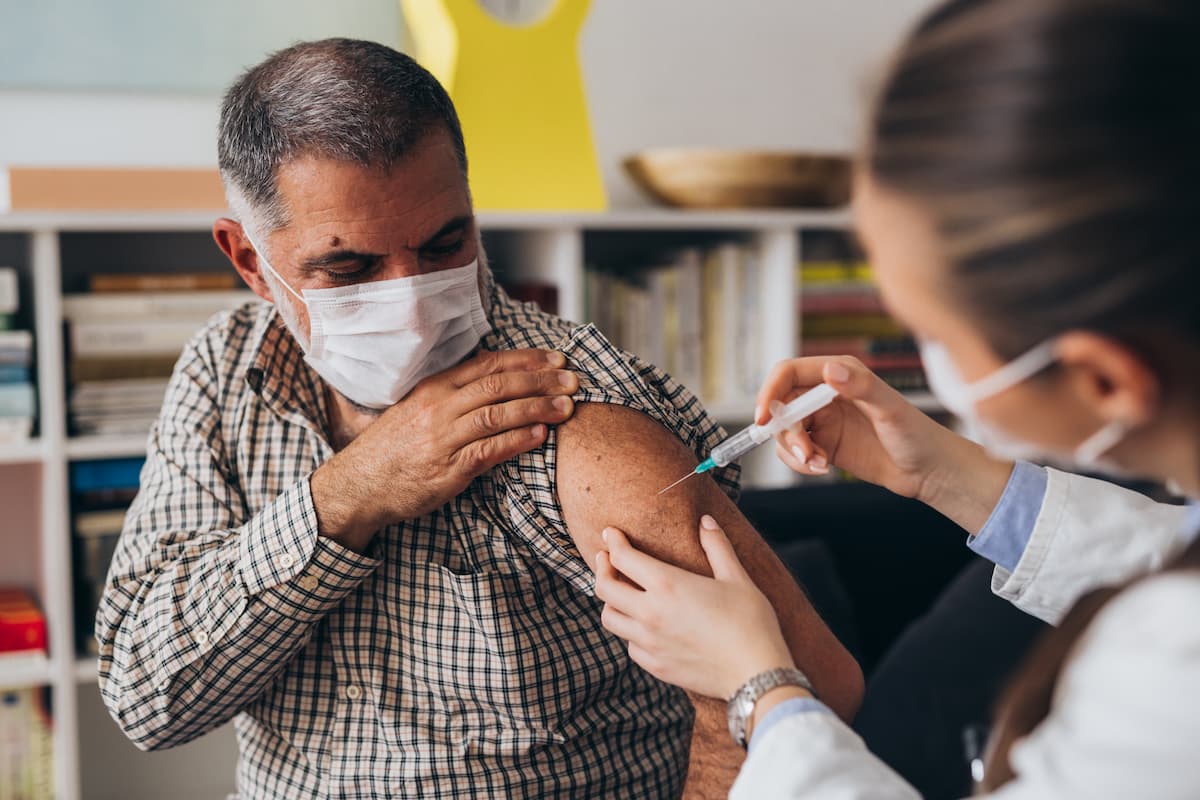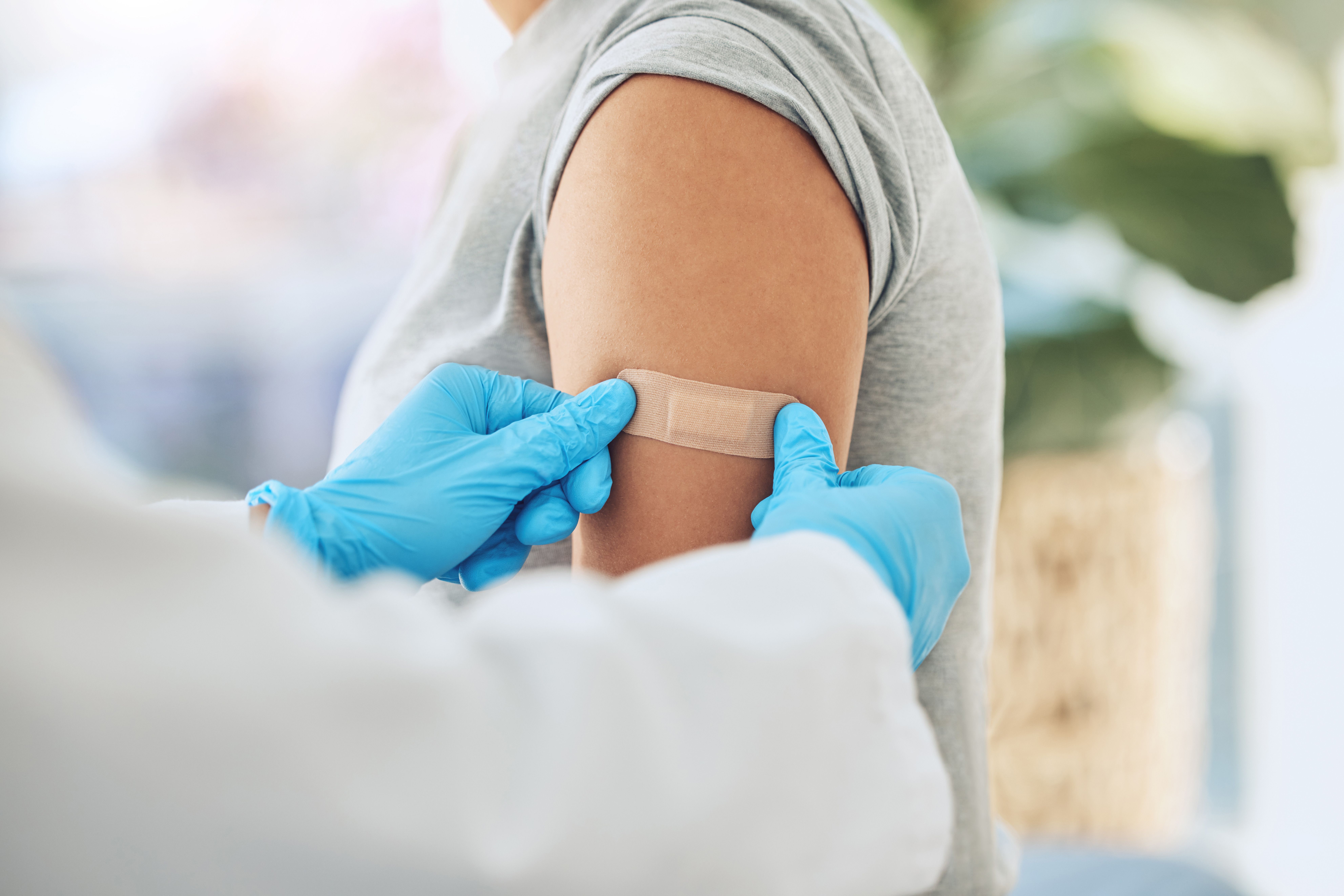Article
J&J Announces Preliminary Results of COVID-19 Booster Shot
Author(s):
Administered 6 months after the 2-dose regimen of BNT162b2, boosting with the Johnson & Johnson vaccine shows a substantial increase in antibody and T-cell responses.
Johnson & Johnson (J&J) has announced preliminary results from an independent study, including a subset of participants from the Janssen-sponsored COV2008 study, showing that a booster shot of the J&J COVID-19 vaccine (Ad26.COV2.S), administered 6 months after a 2-dose primary regimen of BNT162b2, increased both antibody and T-cell responses.
“There is early evidence to suggest that a mix-and-match boosting approach may provide individuals with different immune responses against COVID-19 than a homologous boosting approach,” study investigator Dan Barouch, MD, PhD, director of the Center for Virology and Vaccine Research at Beth Israel Deaconess Medical Center (BIDMC), said in a statement. “In this preliminary study, when a booster dose of Ad26.COV2.S was given to individuals 6 months after a primary regimen with the BNT162b2 vaccine, there was a comparable increase of antibody responses at week 4 following the boost and a greater increase of CD8+ T-cell responses with Ad26.COV2.S compared with BNT162b2.”
These phase 2 data are reinforced by preliminary results from the UK COV-BOOST clinical study published in The Lancet, which showed that following primary vaccination with 2 doses of either BNT162b2 (n=106) or ChAdOx1 nCov-19 (n=108), a booster dose of the J&J COVID-19 vaccine increased both antibody and T-cell responses.
In this preliminary study, boosting with the J&J COVID-19 vaccine after a primary vaccine regimen of BNT162b2 appeared to lead to a greater increase in CD8+ T-cell responses than boosting with BNT162b2. These T-cell response data suggest differences between immune responses following homologous boosting with BNT162b2 and mix-and-match boosting with the J&J COVID-19 vaccine following a primary regimen of BNT162b2.
The J&J COVID-19 vaccine uses Janssen’s AdVactechnology and cell-mediated immunity, including CD4+ and CD8+ responses. T-cells can target and destroy cells infected by the virus that causes COVID-19. Specifically, CD8+ T-cells can directly destroy infected cells and are aided by CD4+ T-cells.
Both the J&J COVID-19 vaccine and BNT162b2 as boosters led to similar neutralizing and binding antibody levels against the original SARS-CoV-2 strain, as well as the Delta and Beta variants, 4 weeks following the boost. However, after a mix-and-match booster dose of the J&J COVID-19 vaccine, antibodies continued to increase for at least 4 weeks, whereas in individuals who received a homologous boost with the BNT162b2 vaccine, antibodies declined from week 2 to week 4 post-boost.
Neutralizing antibodies are capable of binding to the virus in a way that blocks infection and confines the virus to the upper respiratory tract. Binding antibodies can bind to the virus’ spike protein and inactivate the virus through non-neutralizing antiviral functionalities.
For this study, a specimen biorepository at BIDMC obtained samples from individuals who received the BNT162b2 vaccine. Participants either continued follow-up in the biorepository and were boosted with 30 ug BNT162b2 (n=24) or were enrolled in the COV2008 study (NCT04999111) and were boosted with 5, 2.5, or 1x1010 vp of the J&J COVID-19 vaccine (n=41). The COV2008 study is a blind, J&J-sponsored, ongoing, phase 2 clinical trial (VAC31518COV2008) to evaluate its COVID-19 vaccine as a booster in individuals aged 18 years and older.
The CDC’s Advisory Committee on Immunization Practices has recommended the J&J COVID-19 vaccine as a booster for all eligible individuals aged 18 years and older who receive an authorized COVID-19 vaccine.
In collaboration with academic groups in South Africa and around the world, J&J has been evaluating the effectiveness of its COVID-19 vaccine across variants, including the Omicron variant.
J&J said that it is pursuing an Omicron-specific variant vaccine.
Reference
Johnson & Johnson COVID-19 booster, administered six months after two-dose regimen of BNT162b2, shows substantial increase in antibody and T-cell responses. Johnson & Johnson. News release. December 5, 2021. Accessed December 6, 2021. https://www.jnj.com/johnson-johnson-covid-19-booster-administered-six-months-after-two-dose-regimen-of-bnt162b2-shows-substantial-increase-in-antibody-and-t-cell-responses
Newsletter
Stay informed on drug updates, treatment guidelines, and pharmacy practice trends—subscribe to Pharmacy Times for weekly clinical insights.






